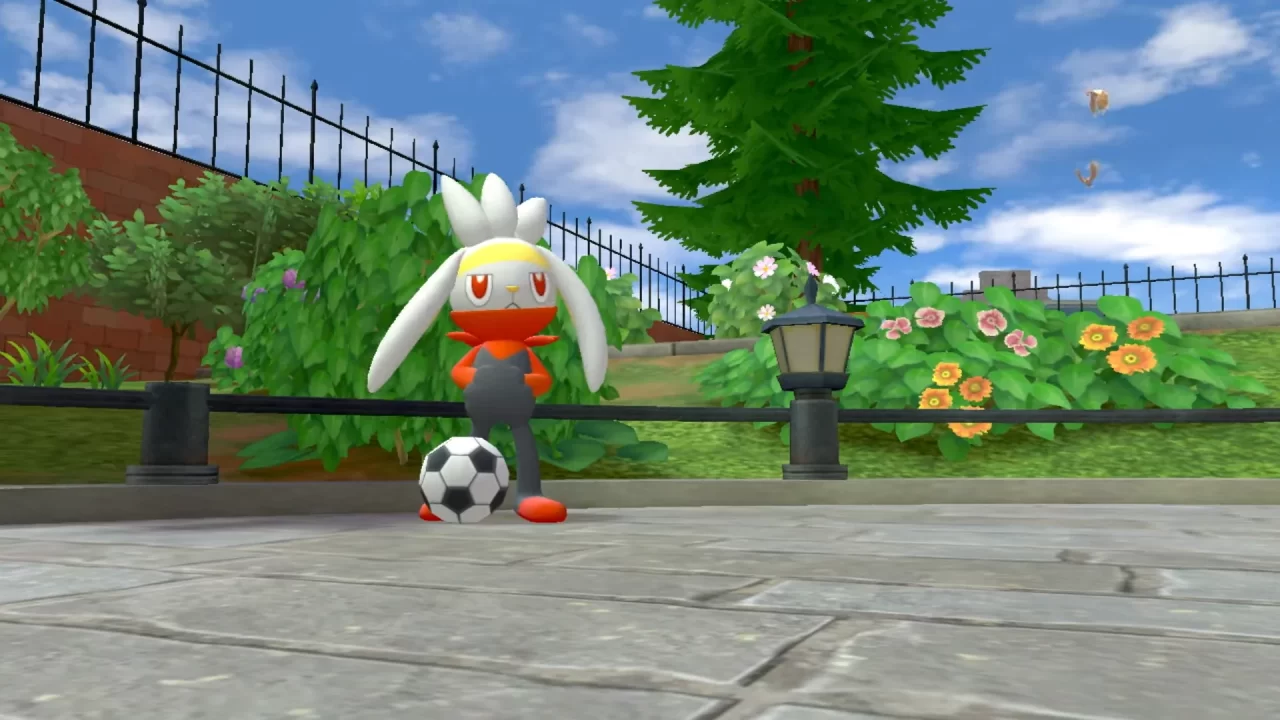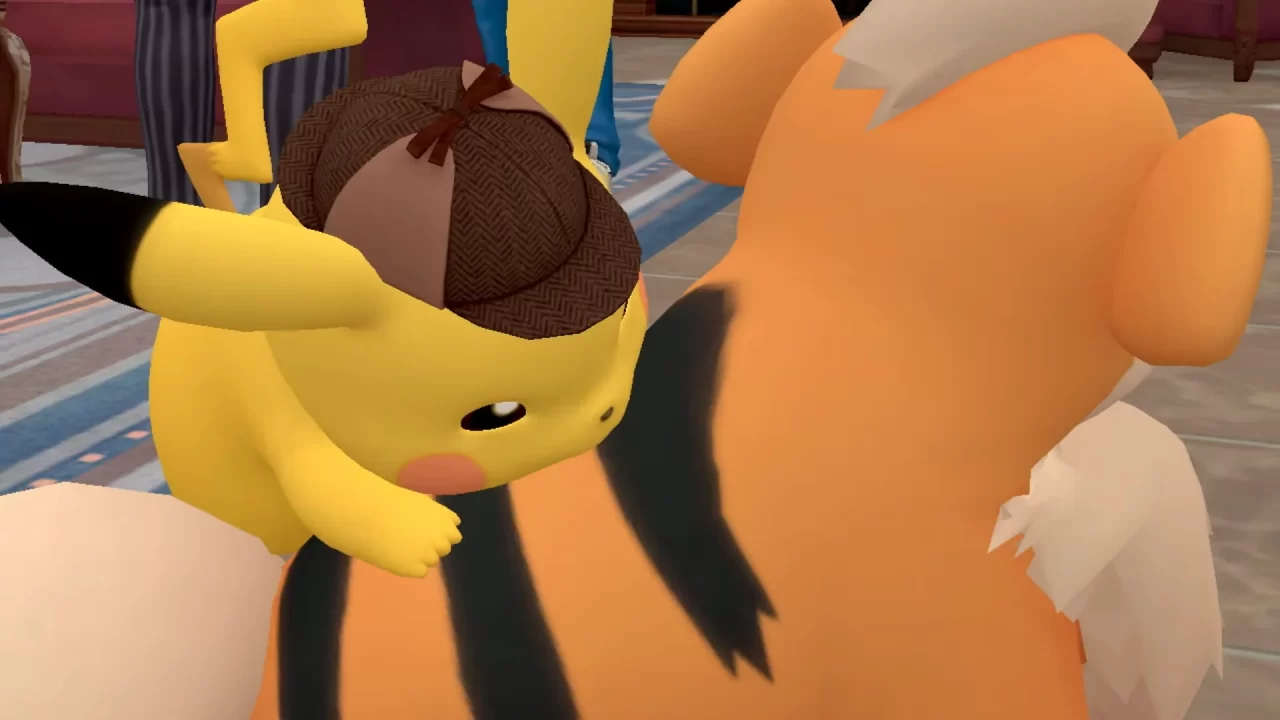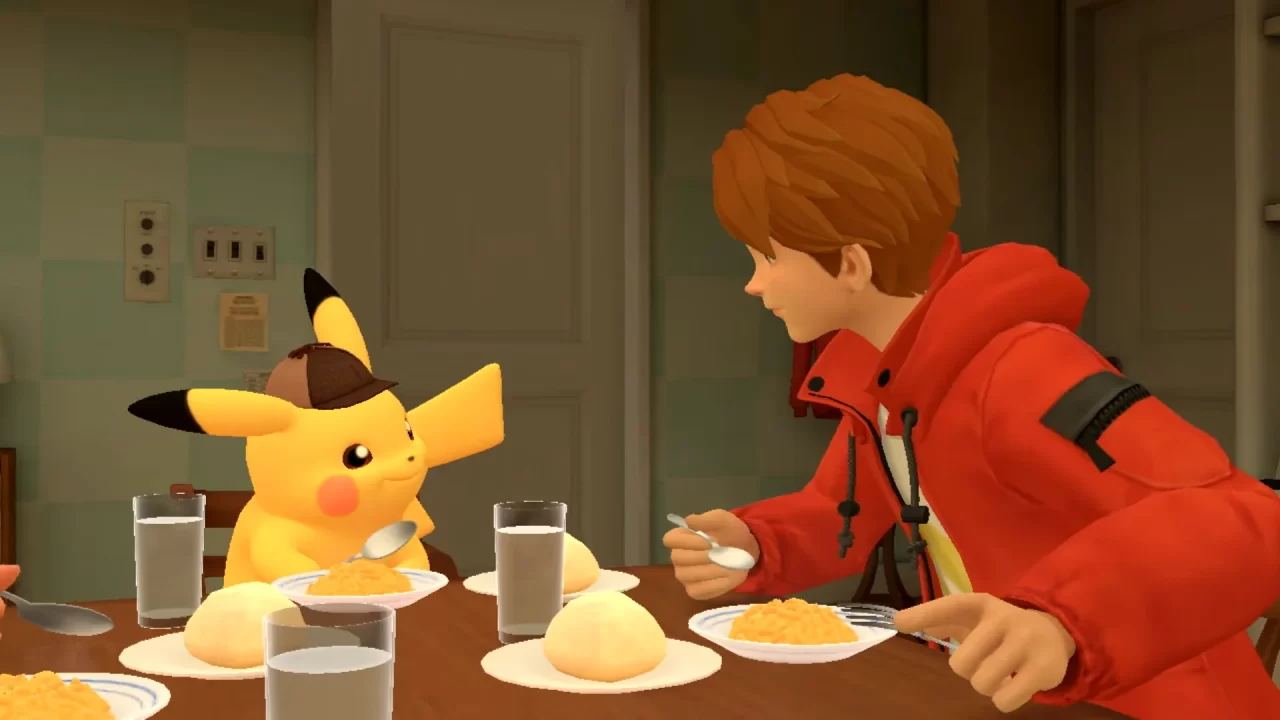I don’t think I was expecting a Detective Pikachu Returns, but the good folks at Game Freak and Creatures decided to go ahead with one anyway. For those unfamiliar with the history, the original Detective Pikachu was a puzzle-solving adventure for 3DS released in 2016. The game itself saw modest success with units sold and middling critical response. In 2019, the franchise spawned a live-action film spin-off starring Ryan Reynolds as the voice of Detective Pikachu, with this film seeing significantly more financial success than the game, with mixed critical response. A sequel game was confirmed around the time of the film’s release, but it took until this present moment for that sequel to come to life.
And, well, I’m not quite sure we needed this sequel. Note: spoilers ahead.
The central conceit behind Detective Pikachu as a franchise is that this particular Pikachu can speak with humans. Or, rather, it can speak to one human. This Pikachu was a partner to Detective Harry Goodman. When Goodman disappears (presumed dead by some, missing by others), his son Tim Goodman takes up the mantle of detective to figure out what happened to his father, and surprise surprise, the partner Pikachu can suddenly communicate clearly with Tim. Poor Tim doesn’t seem to put two and two together, either in the game or film, while most audience members, even young children, can solve the puzzle: Somehow, the memories/personality/soul/essence of Harry Goodman now inhabits the Pikachu. A good ol’ case of amnesia blocks Harry from realizing what’s happening. At the end of the game, Harry/Pikachu figures out what’s going on, and Mewtwo (who serves a significant role in the plot of both games and the film) explains that if Harry remains aware of who he is for too long, the personality of the actual Pikachu will be snuffed out. As a result, Mewtwo reimplements the amnesia.
In the film, there’s a different path spelled out, though much of the rest of the film follows the plot points of the 3DS game faithfully. The film shows Tim learning the truth about his father and Mewtwo restoring the memory/soul, etc. of Harry Goodman with his body.
Now, dear reader, can you guess how this game ends? Of course you can. The more satisfying ending from the film prevails, beat for beat, but with a two-year interim and a series of events arguably more sinister than the first game’s “R” incident. Harry’s body is kept safe by Mewtwo until a mad scientist figures out the truth and kidnaps both the in-stasis human body and our beloved Detective Pikachu, using their energies to magically allow him to fuse with a Pokémon (in this case, Deoxys), which is apparently our villain’s ultimate goal. By thwarting his plans, Mewtwo works behind the scenes to restore consciousness to Harry and Pikachu respectively, and now all is well.
Personally, I find this ending rather satisfying. I found it satisfying in the film, and I thought the 3DS game ought to have had this same ending. I guess they chose to save it for a sequel.
As an aside, I should note that the game makes a fourth-wall-breaking nod to the film’s existence. After the first day of investigation—a prologue and tutorial mission, in truth—Tim has a conversation with sister (Sophia) and mother (Irene) wherein they mention the film and lament that they weren’t even part of the story. The family laugh in noting that when real-life events translate to blockbuster films, stories can be re-told however the director wants, omitting details here and embellishing details there. This was a cute bit of writing that I really enjoyed.
In fact, I generally enjoyed the game’s writing, especially in Pokémon interactions. Because Detective Pikachu can communicate both with Tim and with other Pokémon, we get dialogue with Pokémon throughout Ryme City, a unique place where Pokémon are treated as equals with their humans—or, that was the ideal before the “R” incident. There’s a diverse cast of Pokémon in this game, featuring creatures from many different generations. Unova appears to be heavily represented, despite resources stating that Ryme City is not a part of the Unova region (or any of the named regions in the game’s main series). Seeing these Pokémon act of their own free will—and occasionally, controlled entirely by humans using the game’s new “control cubes” (also called “friendship cubes”), which serve as the meta-mystery leading to the main villain in this particular game.
I first came to enjoy the concept of Pokémon having distinct personalities and great dialogue thanks to the Pokémon Mystery Dungeon series, but in those games, there are no humans present. Detective Pikachu Returns gives us a unique look at how the Pokémon think, feel, act, and respond to the humans around them, whether their own partners, strangers, or even foes. Additionally, while the player primarily controls Tim, there are large portions of the game where the player controls Detective Pikachu, so the dialogue between the great detective and other Pokémon happens more directly, with less confusing back-and-forth translating in its presentation.

Much like its predecessor, Returns is a puzzle-solving adventure game that’s clearly aimed at a younger audience. If you want to find a fail-state of any kind, you have to try to mess up a lot. There are also quick-time events that generally involve mashing the A button to accentuate the action, but they are also a non-challenge. Despite a great deal of movement and interaction, these gameplay “elements” are a mask for a game with precious little in the way of interaction and decision-making. There are side quests available in each of the game’s five main missions, and clearing them grants you a small reward in the form of cute write-ups about the Pokémon you helped in the next morning’s newspaper. I believe I cleared every one of these by accident because these quests generally involve finding a Pokémon on the limited maps available in each day’s investigation, and they’re all so close to the main path of investigation they’re truly hard to miss.
In some ways, this easy, casual gameplay is fitting for the game and the franchise. But it doesn’t exactly make for a compelling experience.
To that end, then, the game’s strengths must come from the writing and the aesthetic. The aural aesthetic is solid: great music, an original soundtrack with a nice mix of jazz for Ryme City itself and more “world music” styles for regions explored outside the town (Bamboo Borough, the southern ruins, and more). The voice acting is also great. Sure, our Detective Pikachu is no Ryan Reynolds: he is returning voice actor from the 3DS original, Kaiji Tang. I think Tang does an excellent job as Harry/Detective Pikachu, balancing lots of comedic moments with the occasional serious, even sentimental, lines of dialogue. The rest of the cast also land well, and even the Pokémon who speak their own names as we hear in the English dub anime sound ridiculously cute.
Visually, the aesthetic is a serious mixed bag. The environments are generally simple, often lacking in detail, but they serve their purpose well. The 3D renderings of the Pokémon are lovely. The humans, however? We’re talking full-on uncanny valley here, friends. The animations are stiff and unsettling, particularly when certain NPCs maintain a walking animation while standing still but turning 90 or 180 degrees during “avoid detection” minigames. Worse yet (somehow) are the character stills. The pre-rendered 3D characters have still snapshots next to their dialogue boxes, and some of them are just so, so bad. I feel uncomfortable just looking at them. Would it be too much to touch up the art? Use 2D sketches? Drop the snapshots altogether?
When I consider the various elements of Detective Pikachu Returns, I can only conclude that this game is a serviceable side game for younger players and a bit more of a chore for older players. I should note that there is an alternate mode of the game to select from the main menu that skips all of the puzzle-solving and just plays through the story—so from that perspective, people who want a simple “interactive novel” in place of the longer experience of the less-than-stimulating puzzle-solving do have an option available.
If you’re looking for a simple, fun, family-friendly Pokémon spin-off game, Detective Pikachu Returns is a fair option. However, among all Pokémon games available on the Nintendo Switch, I would recommend virtually any other game in the Switch library over this one for any player desiring for some level of challenge.




